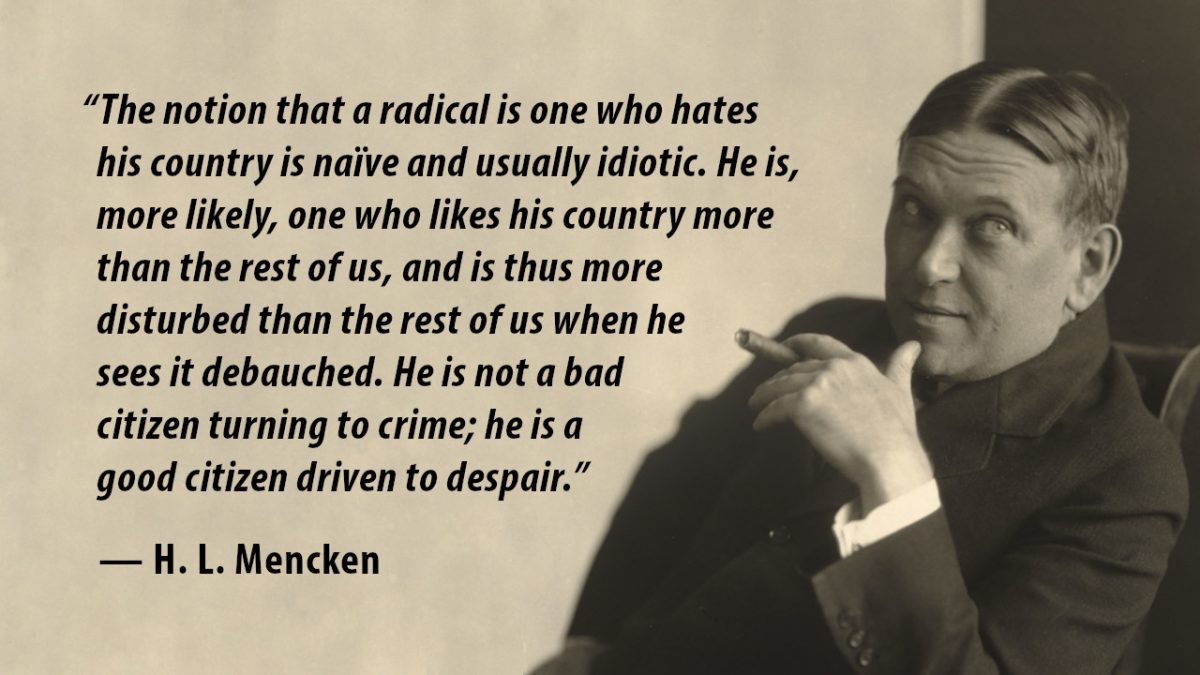You can love your country while opposing its government. This shouldn’t be a controversial statement, but apparently—at least to some people—it is.
Inherent in the opposite belief is the idea that a country and its government are one and the same, yet nothing could be further from the truth. A country is defined by its people, its culture, and its place in history, not by the gang of psychopaths who claim jurisdiction over it.
Not only does loving one’s country not require supporting its government, it may well require one to oppose it. Author Edward Abbey once wrote, “A patriot must always be ready to defend his country against his government.”
Standing up for principle means defending individuals and their freedoms, not supporting a government that has become “dishonest, insane and intolerable” as H. L. Mencken put it.
It is a statist fallacy that one must support a government or its politicians, bureaucrats, and enforcers in order to be considered a moral or upright person. Why would anyone consider unquestioning loyalty and unthinking allegiance to be admirable traits?
Speaking of H. L. Mencken, he apparently encountered this same fallacy some years ago because he countered it in his typically succinct manner.
“The notion that a radical is one who hates his country is naïve and usually idiotic. He is, more likely, one who likes his country more than the rest of us, and is thus more disturbed than the rest of us when he sees it debauched. He is not a bad citizen turning to crime; he is a good citizen driven to despair.”
Whenever a government becomes destructive of mankind’s inalienable rights, it is the right—and I would argue the duty—of the people to alter or abolish it. That was the principle on which this particular country was founded. How did some people twist this idea into demanding obeisance to a tyrannical state?





